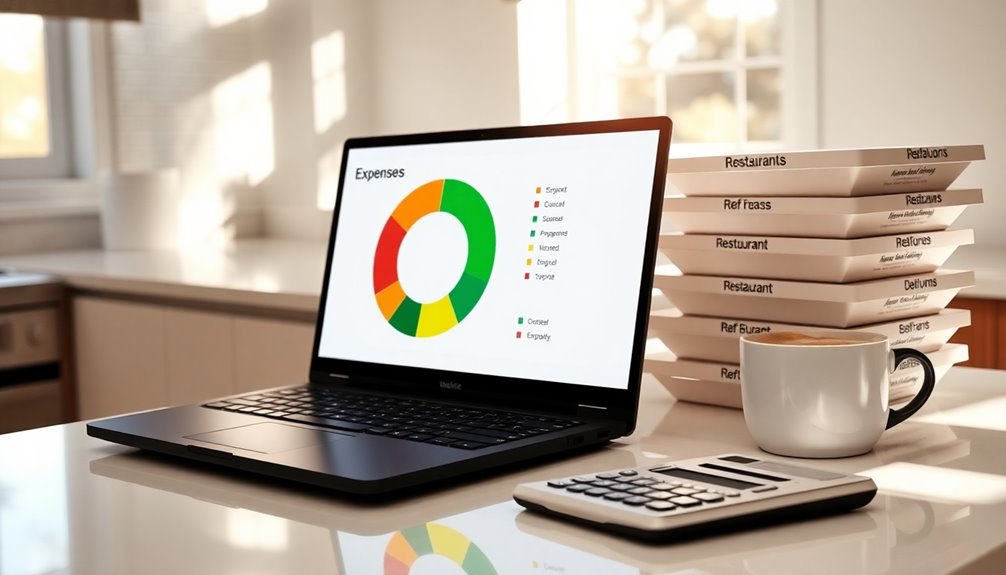To navigate sales tax as a freelancer selling services or products, you need to register with your state tax authority if you exceed sales thresholds or sell taxable items, which allows you to collect and remit sales tax legally. Be aware that rules vary by state regarding what’s taxable, especially for digital products. Keep detailed records and file on time to avoid penalties. If you want a clear path through these steps, continue to discover essential tips and best practices.
Key Takeaways
- Register with state tax authorities online when your sales meet or exceed specific thresholds for services or products.
- Determine if your digital services or products are taxable in each state where you operate or have a nexus.
- Keep detailed records of all sales, taxes collected, and filing deadlines to ensure compliance and accurate reporting.
- Understand state-specific rules for physical and digital goods to correctly apply sales tax and avoid penalties.
- Consult a tax professional to navigate complex regulations, optimize registration, and maintain proper filings.

Have you ever wondered how sales tax applies to your freelance work? It’s a common question, especially if you’re selling services or products directly to clients. The truth is, sales tax rules can be complex because they vary widely between states. To stay on top of your tax obligations, you need to understand the significance of state registration and tax compliance. Registering with your state tax authority is a vital first step. If your freelance business exceeds certain revenue thresholds or engages in specific types of sales, you may be required to register for a sales tax permit. This registration not only legally authorizes you to collect sales tax but also helps you avoid penalties for non-compliance. Each state has its own registration process, which can often be completed online, and it’s essential to keep your registration current, especially if your business grows or your offerings change.
Once registered, you’re responsible for understanding when and how to collect sales tax. In some states, services are taxable, while in others, only tangible goods are subject to sales tax. If you sell physical products, collecting sales tax is usually straightforward—you add the applicable rate to your invoice and remit it to the state. However, if you provide digital products or services, the rules can get murky. Some states consider certain digital goods taxable, while others don’t. It’s up to you to stay informed about your state’s specific tax laws to guarantee you’re charging the correct amount. Additionally, understanding fiscal nexus is crucial because it determines when your business has enough presence in a state to be required to collect sales tax there.
Tax compliance doesn’t end with registration and collection. You also need to keep detailed records of all sales, taxes collected, and expenditures. Proper record-keeping ensures you can accurately file your sales tax returns and defend yourself if audited. Filing deadlines vary by state, but missing them can lead to penalties and interest charges. Many states offer online portals for easy filing, but it’s your responsibility to stay aware of when payments are due and to submit the correct amounts.
To avoid costly mistakes, consider consulting a tax professional or accountant familiar with state sales tax laws. They can guide you through registration, help you understand which sales are taxable, and ensure your filings are accurate. Staying compliant with sales tax regulations is essential for your freelance business’s legality and reputation. It might seem overwhelming at first, but with proper registration, diligent record-keeping, and timely filings, you’ll navigate sales tax confidently. This way, you can focus on what you do best—delivering quality work—without the stress of falling afoul of tax laws.
Frequently Asked Questions
How Do I Register for Sales Tax in Multiple States?
You need to register for sales tax in multiple states by checking each state’s nexus rules, which determine if your activities require registration. Start by identifying where you have economic or physical nexus, then visit each state’s tax authority website to complete the registration process. Keep track of your registrations, as requirements vary. This guarantees you’re compliant with state laws and can collect and remit sales tax properly.
Are Digital Products Subject to Sales Tax?
Many digital products are subject to sales tax, but exemptions vary by state. You might think digital items are tax-free, but some states have sales tax thresholds or specific rules for digital goods. Always check local laws, as some states exempt certain digital products like software or e-books, while others tax them. Staying informed helps you comply and avoid unexpected costs, ensuring your freelancing business runs smoothly across different jurisdictions.
What Records Should I Keep for Tax Audits?
You should keep detailed records of all sales transactions, including invoices, receipts, and payment records, to guarantee audit preparedness. Maintain organized documentation of your expenses, including receipts and bank statements, to substantiate deductions. Track your sales tax collected and remitted, along with any correspondence related to tax matters. Regularly updating and backing up these records helps you stay audit-ready, makes tax filing smoother, and provides proof if questions arise during an audit.
How Does Sales Tax Apply to International Clients?
International clients can feel like steering uncharted waters, but understanding international tax and cross border compliance makes it manageable. Sales tax generally applies within your state or country, but for international sales, you usually don’t collect sales tax unless specific rules or digital services require it. Stay informed on international tax laws, keep detailed records, and consider consulting a tax pro to avoid sinking in compliance issues.
Can I Deduct Sales Tax Paid on Business Expenses?
Yes, you can deduct sales tax paid on business expenses if it qualifies as a tax deduction strategy. Keep detailed records of sales tax exemptions and receipts to support your deductions. By tracking these expenses carefully, you maximize your deductions and reduce your taxable income. Remember, deducting sales tax is especially beneficial for large purchases or equipment essential to your business operations, helping you save money during tax season.
Conclusion
Charting sales tax may seem tricky, but with a little diligence and dedication, you’ll develop a dependable, detailed understanding. By staying savvy, staying updated, and seeking support when needed, you can smoothly sail through sales tax obligations. Remember, mastering the mechanics minimizes mistakes and maximizes your peace of mind. So, stay strategic, stay informed, and keep growing — success is just a sales tax savvy step away!









